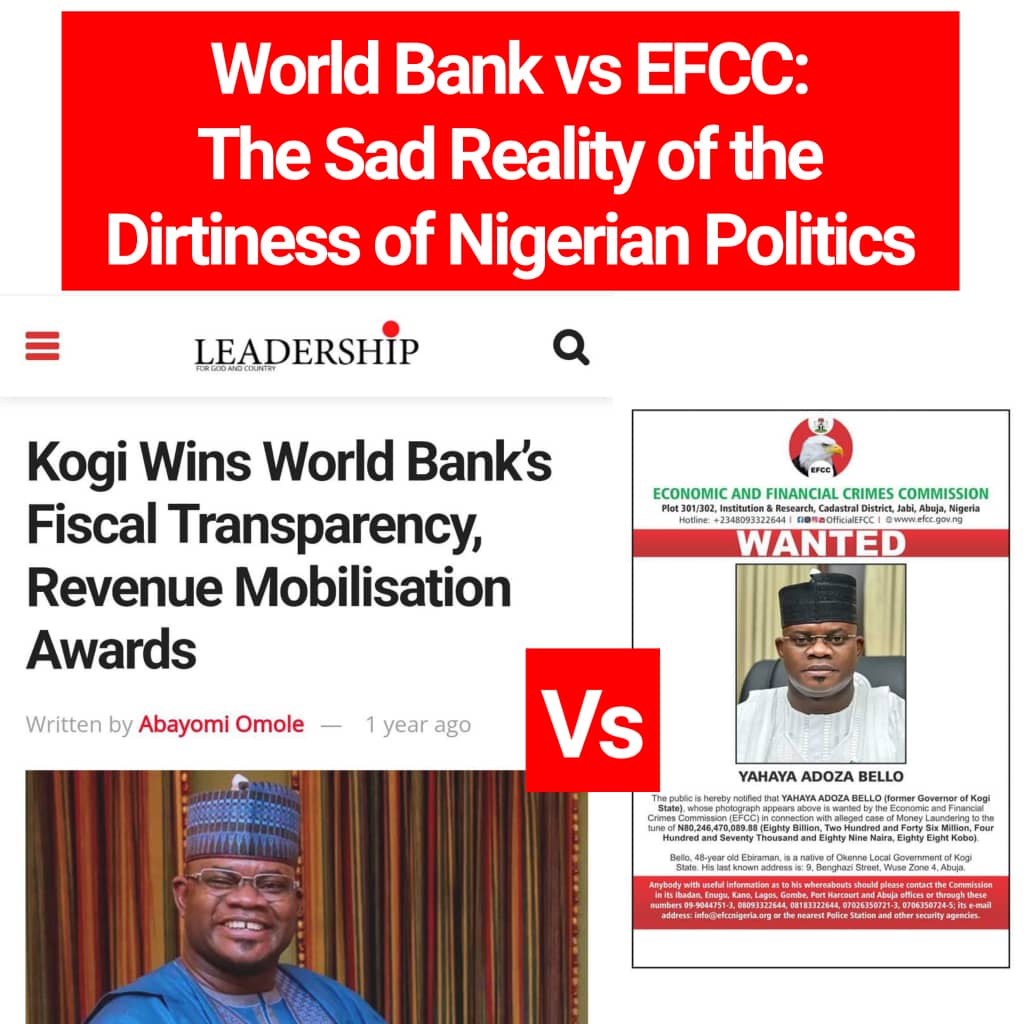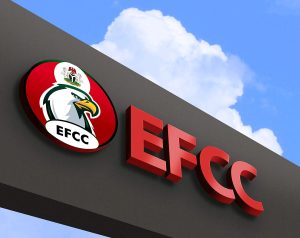Bello’s Multiple World Bank Fiscal Transparency Awards vs EFCC’s Vendetta: The Sad Reality of the Dirtiness of Nigerian Politics

..Yahaya Bello’s ordeal.
In the unique nature of Nigerian politics, where transparency often seems like a distant dream, contrasting narratives emerge, painting a complex picture of governance. Nowhere is this complexity more evident than in the divergent paths of recognition taken by the World Bank and that of the Economic and Financial Crimes Commission (EFCC) concerning former Kogi Governor Yahaya Bello’s administration.
On one hand, the World Bank had previously lauded Bello’s administration for its strides in fiscal transparency and revenue mobilization. The recognition bestowed upon his administration, in the form of multiple awards and accolades, speaks to a narrative of progress and accountability in a landscape often marred by corruption and opacity. Bello’s government, according to the World Bank, had demonstrated a commitment to openness and efficiency in managing public finances, a rare feat in Nigerian politics. For this, Governor Yahaya Bello had won most transparent state government award from the apex banking body, an award given to the Kogi state government under watch of Yahaya Bello from year to year.
However, juxtaposed against this commendation is the relentless pursuit of Bello by the EFCC, Nigeria’s anti-corruption agency. Despite the World Bank’s recognition of Bello’s administration as a paragon of transparency, the EFCC’s actions tell a different story. The agency’s attempts to arrest Bello over allegations of financial misconduct cast a shadow over the accolades bestowed upon his administration, underscoring the complexities and contradictions inherent in Nigerian politics.
The coexistence of these contrasting narratives highlights the murky waters of Nigerian governance, where perceptions of transparency and corruption often coalesce in unexpected ways. While the World Bank applauds Bello’s administration for its transparency efforts, the EFCC’s pursuit suggests a different reality—one fraught with allegations of malfeasance and impropriety.
The suspicion of political motivation behind the EFCC’s actions gains traction when considering the agency’s selective enforcement of restraining orders. Despite court injunctions prohibiting Bello’s arrest, the EFCC’s persistence in its pursuit raises red flags about ulterior motives. Moreover, the agency’s failure to similarly pursue other officials facing similar legal constraints further fuels suspicions of bias and political interference.
In contrast, the World Bank’s recognition of Bello’s administration for transparency serves as a beacon of credibility amid the fog of political intrigue. The institution’s impartial assessment underscores the significance of international validation in Nigeria’s governance landscape. Unlike the EFCC, whose actions are subject to scrutiny and suspicion, the World Bank remains a respected authority, lending legitimacy to its assessments and commendations.
Ultimately, the tale of World Bank recognition versus EFCC pursuit serves as a sobering reminder of the intricacies of Nigerian politics and the challenges of effecting meaningful change in a landscape shaped by competing narratives and interests.








